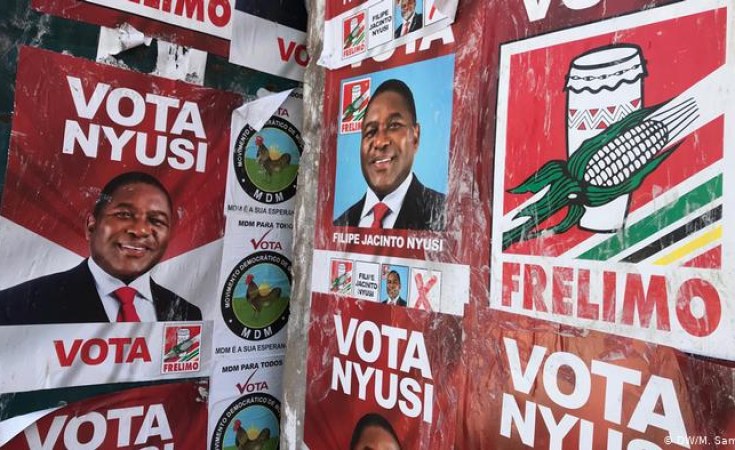Cape Town — Unofficial results in Mozambique’s elections point to sweeping victories for the ruling Frelimo party and President Filipe Nyusi, prompting some analysts to question the credibility of the polls, reports Associated Press, carried on Voice of America.
Mozambique’s electoral commission has not released any official results yet, but the Sala da Paz consortium of Mozambican civil society organizations told AP it projects that Nyusi won 71% of the vote, far ahead of 21% for Ossufo Momade, leader of the Renamo opposition party. The estimates are based on the group’s calculations of results posted outside polling stations.
Commenting on the Mozambique election results, Nathan Hayes, analyst at The Economist Intelligence Unit, said:
"Early election results, although partial, are pointing to a crushing electoral victory for Frelimo, and president Filipe Nyusi, that will divide the country and push a lasting peace further away. The election campaign marked by violence, polling fraud and official intimidation following early returns from voting October 15th. Frelimo is racking up lopsided victories in its southern heartlands where it is benefiting from grossly inflated voter rolls but the battle ground provinces of the populous centre and north that are the natural territory of the opposition are also being tipped over to the ruling party. Frelimo victories in the historical opposition strongholds of Sofala, Zambezia, Manica, Nampula and Tete — where it most often won in the relatively cleaner elections of the 1990s and 2000s — would be a serious setback for the country’s peace process and multiparty democracy.
"Voting day was marked by systematic incidents of electoral fraud, ballot box stuffing and intimidation of independent observes and opposition politicians in most areas of the country. The authorities blocked most independent observation—traditionally the means by which a parallel count of accurate electoral results were maintained—by denying accreditation. A small number of the planned total of independent observers were granted accreditation by election day while polling stations were flooded by pro-regime groups, some of whom have been documented in engaging in ballot stuffing and irregularities.
"Frelimo is at a historical low in its popularity and was politically vulnerable heading into the election after years of elite abuses and oppression of civil society that has rolled back the country’s democratic pluralism. Additionally, economic opportunity for many has been curtailed by the implementation of severe austerity measures caused by an economic contraction and inability to access international capital markets after the ruling party refused to account transparently for what is has done with proceeds from US$2.8bn in illicit loans, which precipitated a sovereign default. The party had realised that it could not afford a clean election but has gone much further by pursuing a lopsided victory that will deny the main opposition party, Renamo, a share of power."


